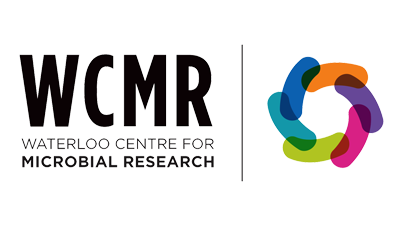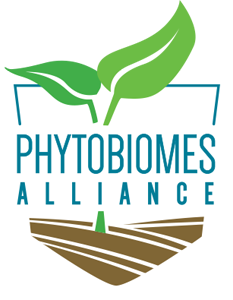
Waterloo Centre for Microbial Research joins International Phytobiomes Alliance
The International Alliance for Phytobiomes Research (Phytobiomes Alliance) is pleased to announce that the Waterloo Centre for Microbial Research (WCMR) has joined the organization as a sponsoring partner.
The Phytobiomes Alliance is an international, nonprofit consortium of academic institutions, private companies, and government agencies. Launched in 2016, it aims at building a foundation for exploitation of the phytobiome for food security.
“Phytobiomes” refers to a plant growing within a particular biome, enabling a holistic view of the production of crops, trees, and grasslands that includes the plant itself, all micro- and macro-organisms living in, on, or around the plant—such as microbes, animals, insects, and other plants—as well as the environment, which includes soil, air, water, weather, and climate.
Created in May 2017 within the University of Waterloo in Canada, the WCMR is a structure for collaborative research on microbes. Its goal is to unify, catalyze, and promote multidisciplinary research on campus, and to promote national and international research initiatives.
“The Phytobiomes Alliance and the Waterloo Centre for Microbial Research have significant overlapping interests in the importance of microbes in the role of agriculture,” says Trevor Charles, WCMR Director. “This old, but rapidly expanding field presents huge new opportunities in study and collaboration and the Alliance provides opportunities for experts from around the world to collaborate and accelerate research in sustainable and productive agriculture.”
Trevor Charles will represent the WCMR on the Alliance Coordinating Committee. This committee identifies research, resource and technology gaps, establishes priorities, and develops strategic plans to achieve Alliance goals.
“We are extremely excited about having the Waterloo Centre for Microbial Research fully engaged with the Alliance. The Centre, and Trevor Charles specifically, brings to the Alliance a broad range of expertise and knowledge on microbes in various environments, including urban agriculture,” says Kellye Eversole, the Alliance Executive Director. “The Centre projects on indoor phytobiomes will add a new, important dimension to the Alliance core activities.”
Trevor Charles is currently working on several phytobiome-related projects including the Glyphosate Degradation project and Harnessing the Microbiome for Superior Performance in Controlled Environment Agriculture project.
The glyphosate degradation project involves the determination of soil bacteria that degrade glyphosate – an herbicidal agent – and studying how these microbes degrade this herbicidal formulation, as well as analysis and characterization of novel glyphosate degradation pathways. The Harnessing the Microbiome for Superior Performance in Controlled Environment Agriculture project studies the possible use of hydroponic vegetable production for microbiome optimization.
Over the next decades, the United Nations predicts that the world population will grow by 83 million every year, to reach 9.8 billion by 2050 and 11.2 billion by 2100. Producing enough food for this growing population – in a sustainable way, while preserving biodiversity and natural resources – requires a major paradigm shift in agricultural production. By establishing a foundation of knowledge on how phytobiome components interact and affect each other, the Phytobiomes Alliance aims at addressing these challenges.
About the Phytobiomes Alliance
The Phytobiomes Alliance is an international, nonprofit alliance of industry, academic, and governmental partners created in 2016. The goal of the Alliance is to understand, predict and control emergent phenotypes for sustainable production of food, feed and fiber on any given farm.
The vision of the Alliance is that by 2050 all farmers, ranchers, growers and foresters will have the ability to use predictive and prescriptive analytics based on geophysical and biological conditions for determining the best combination of crops, management practices, and inputs for a specific field in a given year.
The Phytobiomes Alliance is sponsored by Bayer CropScience, Eversole Associates, Monsanto, The Climate Corporation, the French National Institute for Agricultural Research (INRA), Indigo Agriculture, the Noble Research Institute, NewLeaf Symbiotics, the French National Research Institute for Sustainable Development (IRD), Colorado State University, the University of Maryland, Penn State College of Agricultural Sciences, the Waterloo Centre for Microbial Research, the American Phytopathological Society, the University of Nebraska-Lincoln, and BioConsortia.
About the Waterloo Centre for Microbial Research
The Waterloo Centre forMicrobial Research (WCMR) at the University of Waterloo combines interdisciplinary research and academic programs that explore and exploit microbial communities and their collective genomic potential within Earth’s myriad habitats.
Researchers in the network are drawn from all six faculties of the University of Waterloo, united by a common theme of microbes. The Centre supports these researchers by fostering connections and finding new ones both within the University and beyond.
###
Contacts
Isabelle Caugant
Communications Director
International Alliance for Phytobiomes Research
+1 916-840-8801
caugant@eversoleassociates.com
Twitter: @phytobiomes
Facebook: Phytobiomes Alliance
Carly Huitema
Manager
Waterloo Centre for Microbial Research
+1 519-573-3349
wcmr.manager@uwaterloo.ca
Twitter: @WaterlooCMR
